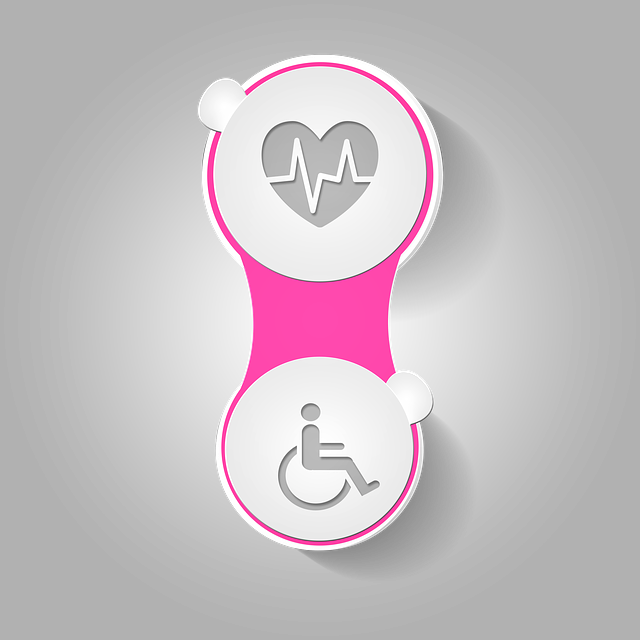Anxiety disorders can be effectively managed through holistic wellness programs that integrate mental health workshops, stress management techniques, mindfulness exercises (like yoga and meditation), nutrition counseling, and fitness routines. These comprehensive initiatives address the mind-body connection, promoting relaxation, emotional regulation, healthier lifestyle choices, and resilience. Key components include stress reduction, mental balance, calming nervous systems, enhanced physical health through exercise, and dietary guidance. Scientific research supports practices like mindfulness and meditation as powerful tools for managing anxiety, with yoga further enhancing these benefits through a holistic approach combining physical postures, breathing exercises, and present-moment awareness. Holistic wellness programs that incorporate yoga, fitness, and nutrition offer a comprehensive strategy to enhance resilience and combat anxiety, ultimately supporting long-term mental and physical health.
Anxiety is a prevalent challenge impacting millions, yet there are effective therapeutic practices to combat it and build resilience. This article explores holistic wellness programs that merge mental health workshops with physical routines, encompassing stress management techniques, mindfulness, and meditation. We delve into the integration of yoga, fitness, and nutrition plans as powerful tools for enhancing overall well-being. Discover how these comprehensive approaches can transform your life, offering lasting strategies to navigate life’s stressors.
- Understanding Anxiety and Its Impact on Well-being
- Holistic Approaches to Wellness Programs for Mind and Body
- Practical Tools: Stress Management, Mindfulness, and Meditation Techniques
- Integrating Yoga, Fitness, Nutrition for Enhanced Resilience
Understanding Anxiety and Its Impact on Well-being

Anxiety is a natural response to stressful situations, but when it becomes chronic, it can significantly impact overall well-being. It’s essential to recognize that anxiety disorders are not simply a matter of overthinking or being worried; they are complex mental health issues that affect both the mind and body. Prolonged anxiety can lead to physical symptoms such as increased heart rate, insomnia, fatigue, and even weakened immune function. It may also contribute to emotional disturbances, making it harder for individuals to cope with daily challenges.
Understanding these effects is crucial when developing strategies to enhance resilience and manage anxiety effectively. Holistic wellness programs that integrate mental health workshops, stress management techniques, mindfulness exercises, and even fitness routines can be transformative. Activities like yoga, meditation, and nutrition counseling are part of a comprehensive approach to addressing anxiety at its root. These practices promote relaxation, improve emotional regulation, and encourage healthier lifestyle choices, all of which contribute to building resilience and enhancing overall wellness.
Holistic Approaches to Wellness Programs for Mind and Body

In today’s fast-paced world, holistic approaches to wellness programs for mind and body have gained significant traction as people seek effective ways to manage stress and enhance their overall well-being. These comprehensive initiatives go beyond addressing symptoms by focusing on the interconnectedness of mental health workshops, mindfulness and meditation practices, yoga for wellness, fitness and exercise plans, and nutrition and diet counseling. By integrating these diverse elements, holistic wellness programs empower individuals to cultivate resilience against anxiety and promote sustainable mental and physical health.
Wellness programs that prioritize holism recognize that the mind and body are intricately linked. Mental health workshops provide tools for managing stress, cultivating emotional balance, and fostering positive thinking patterns. Yoga and meditation practices have been shown to reduce anxiety and improve mood by calming the nervous system and promoting relaxation. Fitness and exercise plans not only enhance physical health but also boost endorphin release, contributing to improved mental clarity and a sense of accomplishment. Nutrition and diet counseling play a crucial role in supporting overall wellness by teaching individuals how to fuel their bodies with nutritious foods that support brain health and stabilize mood.
Practical Tools: Stress Management, Mindfulness, and Meditation Techniques

Anxiety can be a formidable obstacle to overall wellness, but practical tools like stress management techniques offer effective solutions. Engaging in regular mindfulness and meditation practices has been scientifically proven to reduce anxiety levels and boost resilience. These ancient techniques teach individuals to stay present, cultivating awareness of thoughts and feelings without judgment. By focusing on the breath or guiding visualizations, practitioners learn to calm their minds and bodies, breaking free from anxious thought cycles.
Integrating yoga for wellness into a holistic wellness program further enhances these benefits. The combination of physical postures, breathing exercises, and mindfulness in yoga creates a comprehensive approach to mental health workshops. Stress management programs that incorporate fitness and exercise plans, coupled with nutrition and diet counseling, provide a multifaceted strategy to address anxiety. These holistic wellness programs cater to the mind-body connection, fostering resilience through both physical and mental conditioning.
Integrating Yoga, Fitness, Nutrition for Enhanced Resilience

Integrating yoga, fitness, and nutrition into your routine is a powerful strategy to enhance resilience and manage anxiety. Holistic wellness programs that combine these elements offer a comprehensive approach to mental health. Yoga for wellness is not just about physical postures; it’s a practice that cultivates mindfulness and deepens the connection between mind and body. Regular sessions can reduce stress, improve focus, and boost overall well-being.
Fitness and exercise plans tailored to individual needs play a significant role in stress management. Physical activity stimulates the release of endorphins, often referred to as “feel-good” hormones, which naturally enhance mood and promote relaxation. Mental health workshops that incorporate exercises like mindfulness meditation or deep breathing can empower individuals with effective tools to combat anxiety. Additionally, nutrition and diet counseling are essential components, as the food we consume significantly impacts our mental state. A balanced diet supports not just physical health but also contributes to a stable and positive mindset.
In conclusion, addressing anxiety through comprehensive holistic wellness programs that integrate mental health workshops, stress management techniques, mindfulness practices, meditation, yoga for wellness, tailored fitness and exercise plans, and nutrition and diet counseling can significantly boost resilience. By adopting these therapeutic practices, individuals not only reduce anxiety but also enhance overall well-being, fostering a more balanced and fulfilling life.
